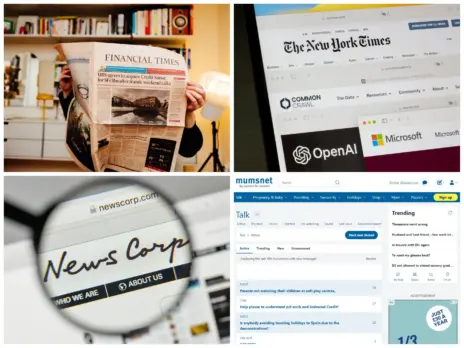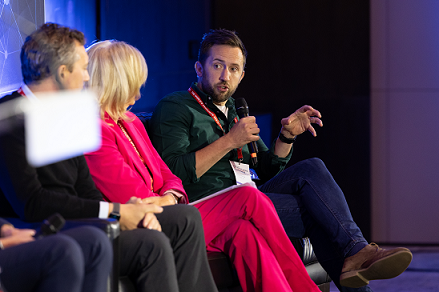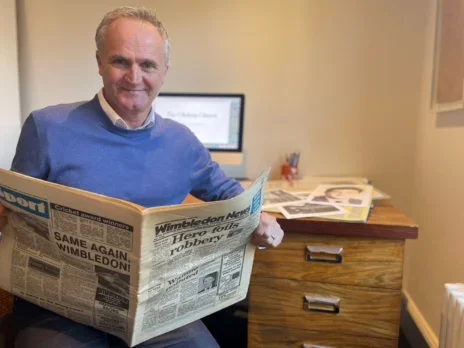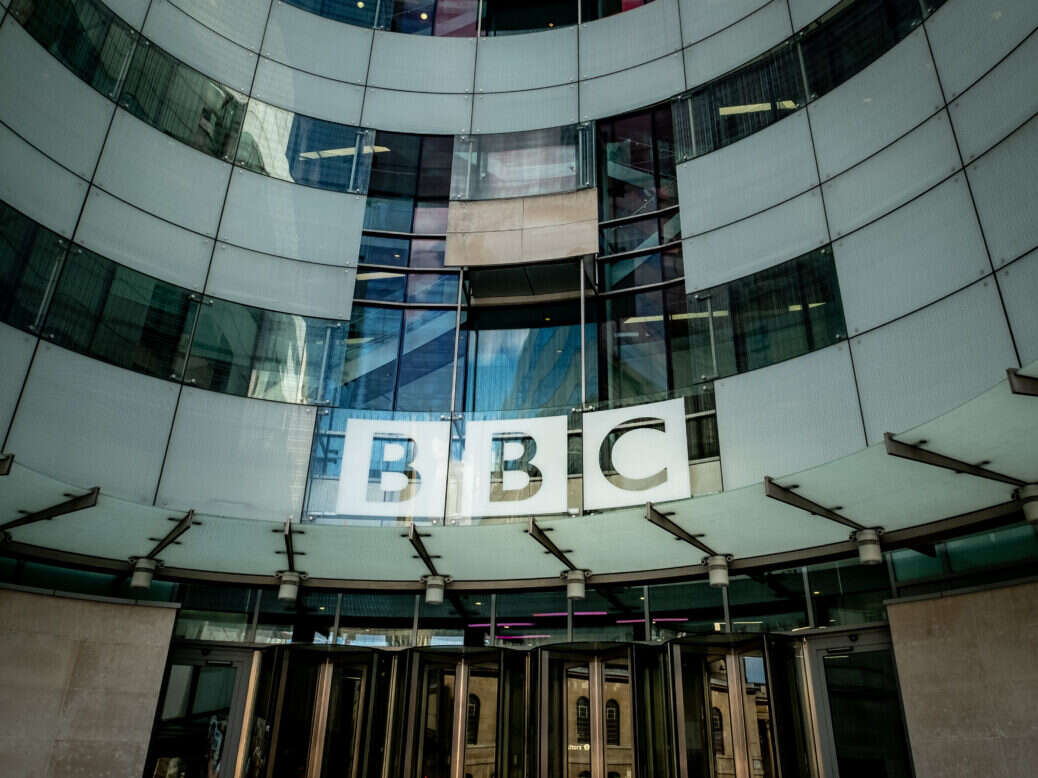
An increase in local news being produced online by the BBC is adding to the “headwinds” facing commercial publishers, regulator Ofcom has found.
Ofcom’s final report on the state of local media in the UK has been seen by some publishers as a vindication of their view that the BBC’s shift in investment from broadcast into online is crushing commercial competition.
In the past two years, the BBC has cut the amount of bespoke programming at its local radio stations and created new jobs online instead. Rival commercial publishers banded together to warn that their reporting could not compete with licence-fee funded stories that can carry no advertising, providing a better user experience and often getting picked up as a result in search.
[Reaction from a Reach editorial boss: BBC should work with us, not against us]
Ofcom said in its new report: “We recognise that increased BBC online local news forms part of the headwinds facing local publishers and there may be some local areas where BBC viewing is displacing commercial viewing.”
It added that the problem could increase further in future. “In addition, it is possible that future BBC changes will have a different impact on commercial publishers.
“For example, our qualitative research noted that if the BBC provided more localised online content people might choose it over alternative online sources, suggesting greater potential for substitution. Therefore, some future BBC changes may require further consideration by the BBC and Ofcom.”
Ofcom found that page views to online local news produced by the BBC have increased since 2023 due to its reinvestment programme. However, it said this could not be definitively and causally linked with falling page views at other publishers, a phenomenon that had already begun due to evolving audience habits and changes to Google and Facebook algorithms.
The report said that referrals from Google to BBC nations and regions pages have rose from around 15 million in April 2022 to more than 40 million by June 2024.
Across the UK, the BBC had a 26% share of monthly average local news page views in 2022, rising to 32% in 2023 and 37% in H1 2024, according to Ipsos iris data analysed by Ofcom. The biggest change was in England, where commercial providers saw their share fall from 80% to 67%. Each regional market is different, with the BBC consistently making up 76% of local page views in Wales.
“It is possible that the increase in BBC page views is contributing to the decline in commercial page views, and the impact may be more significant on publications in some local areas,” the report said.
“However, looking across the aggregate picture, we have not found significant evidence that BBC page views are displacing commercial publisher page views.”
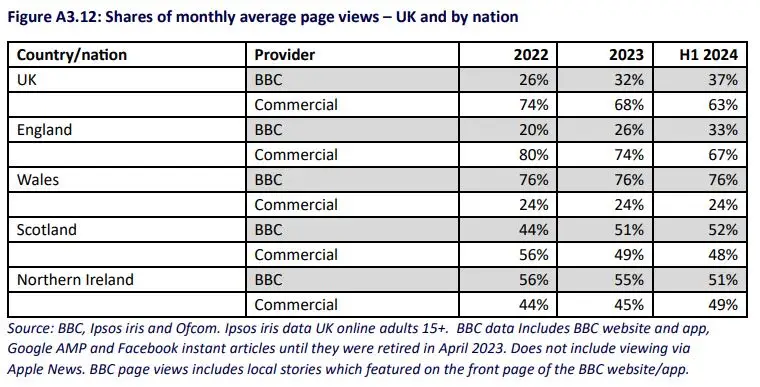
In qualitative consumer research undertaken by Ofcom, the “overwhelming majority” of people said they had not noticed the BBC’s changes and had not changed their media habits as a result. However there was a consensus that they preferred the BBC’s user experience and lack of paywall, and Ofcom said the BBC’s content was seen as less “sensationalist” – although also less local than some sources.
“Some felt that if the BBC was able to provide sufficiently localised content, with a better user experience (for example, advert free), they might choose it over alternative online sources.”
There was an acknowledgement from Ofcom that there are “growing challenges in sustaining reliable and relevant local news throughout the UK” even without the BBC.
“These include falling revenues and fierce competition for audiences who are increasingly avoiding news and unwilling to pay for it. Consolidation and cuts in response to these challenges have affected local news provision across TV, radio and print.”
David Higgerson, chief digital publisher at Reach which is the biggest commercial news publisher in the UK, said: “We are pleased Ofcom has recognised that the BBC is part of the headwind local news publishers now face. The data presented by the BBC speaks for itself, as does its research.”
Higgerson referred to research by Alma Economics, commissioned by the Department for Digital, Culture, Media and Sport, that found “just 2% of local BBC news articles are unique, and not covered elsewhere. Ofcom’s research also concludes that article from commercial publishers tend to be longer, which to us demonstrates the BBC’s expansion into local news is now crowding out deeper, local journalism from established providers, which ultimately will leader to a less media plurality and a local media space dominated by a publisher who is not able to campaign on behalf of local people.
“We hope that the BBC finally comes good on the requests of MPs, the DCMS, the House of Lords Communications and Digital Committee and Ofcom and recognise its broad role in creating a healthy, pluralistic local news world in the UK, which has to go far beyond its continued, and welcome, support for the Local Democracy Reporters Service, a scheme which came about as a result of inspired leadership from within the BBC by people who were committed to the BBC doing the right thing.”
Owen Meredith, chief executive of the News Media Association which represents the national and local news industry, said: “It is now time for the BBC to acknowledge this and work with us to develop a sustainable future that promotes local news instead of obstructing it – and for Ofcom to decisively lead the way in achieving these goals, rather than continuing with the overly cautious approach it is currently adopting.
“The review calls on the government to take action that supports local journalism, rightly highlighting the innovation within the local news sector and the huge audiences it commands. We look forward to engaging on this important work as it develops.”
A BBC spokesperson said: “We welcome Ofcom’s Local Media Review and we are keen to continue working with partners across the entire sector to support the future sustainability of local news provision.
“The media regulator’s analysis is also clear that it found no ‘significant evidence’ that the general decline in news consumption experienced by some online commercial publishers over the last two years is causally linked to the BBC’s investment in its own local online services.
“Alongside its own services, the BBC also invests substantially to support high quality news jobs within the local commercial sector through the Local Democracy Reporter Service – a unique network of 165 journalists funded by the BBC and employed by commercial newsrooms to report on local authorities and democracy.”
Email pged@pressgazette.co.uk to point out mistakes, provide story tips or send in a letter for publication on our "Letters Page" blog

